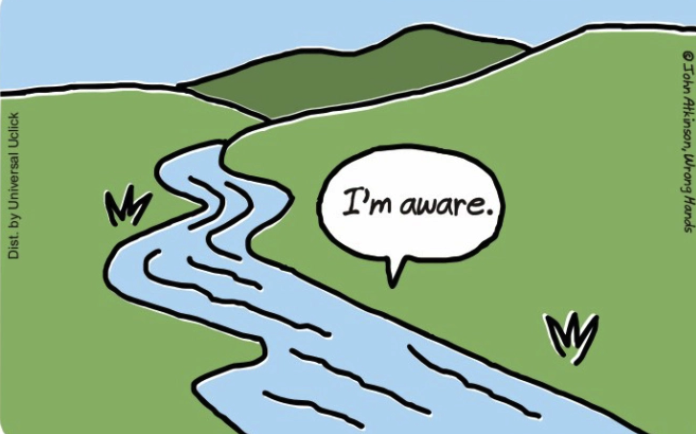I’ve never really watched the WNBA aside from peripherally checking scores. ast season, however, it quickly became one of my favorite leagues to follow. Not just because Stephen A. Smith and Shannon Sharpe magically started caring about the league, but because I realized it’s a different style of play. It’s like watching the NBA before players got soft. There’s less iso-to-three spam and the game is overall more pure.
In my few months of following the league, however, I’ve noticed that commentators, without failure, have the worst takes on the WNBA. It’s amusing to watch Shannon Sharpe and Skip Bayless go at it over a league they’ve probably watched fifteen combined minutes of. Even relatively knowledgeable analysts consistently say the wrong things. Inherent rigidity, less data, sexism, or a combination of all those factors could be the reason. I honestly don’t know. That being said, I’m no expert.
Over the summer, we witnessed the WNBA’s peak, which I mostly would attribute to the conflict between Chicago Sky forward Angel Reese and Indiana Fever guard Caitlin Clark. For those who are unfamiliar with the dynamic between these two, here’s a quick recap: two years ago, they went head-to-head in the 2023 NCAA women’s national championship with Reese’s LSU defeating the Clark-led Iowa by an ample margin.
This past March Madness, Clark seemed to flip the script from 2023. The 6’0” guard started shattering every NCAA record there is, and the media couldn’t go fifteen seconds without mentioning her feats. Other people, like my dad (a lifelong basketball fan), actually started caring about the women’s side of the tournament. People were drawing comparisons that would’ve seemed unfathomable a year ago dropping names like Steph Curry and Reggie Miller. ESPN was infested with clips of Clark chucking up shots that make you think, no way, and making them. The tournament finished in a rematch of 2023, with Clark’s Iowa defeating LSU and Reese in the semifinal.
It’s important to note that Clark’s prodigious development translated into views, and the women’s 2024 collegiate title game garnered 24 million viewers. That’s nearly double the number of the most recent NBA finals. A few months later, in the WNBA draft, Clark was selected first and Reese was selected seventh.
A rivalry culminated between the two coming to a climax at a Indiana Fever vs Chicago Sky game,when Reese went up to block Clark, and hit her very hard in the head.
This flagrant foul came at a tense time in their careers, and Reese wanted to speak her mind on the topic.
“The reason why we’re watching women’s basketball is not just because of [Caitlin Clark],” she said after a game. “It’s because of me, too. And I want you to realize that. Like it’s just not because of one person.”
Pundits were quick to categorize Reese’s statement as jealousy. Skip Bayless and Stephen A. Smith, two very popular talk show hosts, declared Reese the instigator. Content creator Greg Foreman published a video titled “Angel Reese LASHES OUT In Victimhood After BRUTALLY CLOTHESLINING Caitlin Clark During Loss!”
I want to point out that Clark would be the first to recognize Reese’s greatness, and the rivalry between the two is largely exacerbated by the media.
The WNBA has always been centered around “small-ball” – a playstyle that discounts post play for distance scoring and speed. Angel Reese is one of the few exceptions. She’s a pure post player in a league filled with players that get timid around the basket. No, she doesn’t fill the highlight reels like Clark, but that’s exactly what I’m critiquing. A historic criticism of the league has been its lack of dunks and high-octane athletic plays. Shaquille O’Neal even suggested they lower the rim. Reese defies these stereotypes. Unfortunately, commentators are not giving Reese her deserved respect for contributing to women’s basketball as a whole.
But if we look past the criticism of Reese’s playstyle, commentators seem determined to minimize her personality and expressive nature. I can’t be the only one that has noticed a commentary underlined by the implicit demand that Reese just stay quiet and be grateful. I want to dive into the double standard here. If Kyrie Irving, Allen Iverson, or Charles Barkeley outwardly expressed their disdain for the institution that employs them, they would never be subjected to the ridicule Angel Reese has endured. Skip Bayless called Kyrie the “most gifted I’ve ever seen.” The irony is that all three of the aforementioned players are historically known as obnoxious instigators. Kyrie’s long resume includes ditching his team over a vaccine, promoting anti-semetic rhetoric, slamming younger teammates after losses, and insisting the Earth is flat. There has never been a time where a player in the NBA has been told to be less vocal, especially because another star is better at expanding league revenue. But Reese is the instigator for claiming that her sport is about more than one person?
The sports world cannot seem to fathom that women basketball players can have spirited personalities. They mask this prejudice behind “hot-takes” and the idea that provocative statements are unsportsmanlike and bad for the league.
But the inherent bias goes beyond the players.
Gilbert Arenas, former Washington Wizards guard and convicted felon, has been invited on the Stephen A. Smith Show many times. Mavericks Coach Jason Kidd beat his wife, who later divorced him. He’s still actively coaching. The list goes on. These men are celebrated by the media, but we’re supposed to believe that Reese is the problem.
Sadly, Reese is only the latest iteration of a historic issue. WNBA legend Sue Bird was pushed by the league and critics to stay in the closet. Having to suppress her identity was a personal injustice, but also a disservice to many young queer individuals that would love to see themselves represented in professional sports. Imagine all the players that are fueled by passion who feel compelled to downplay their identity for fear of the media’s scorn.
While I have hope, we must remember that the WNBA cannot small-ball to prominence. It simply won’t work.
Edited by Amir Mason



